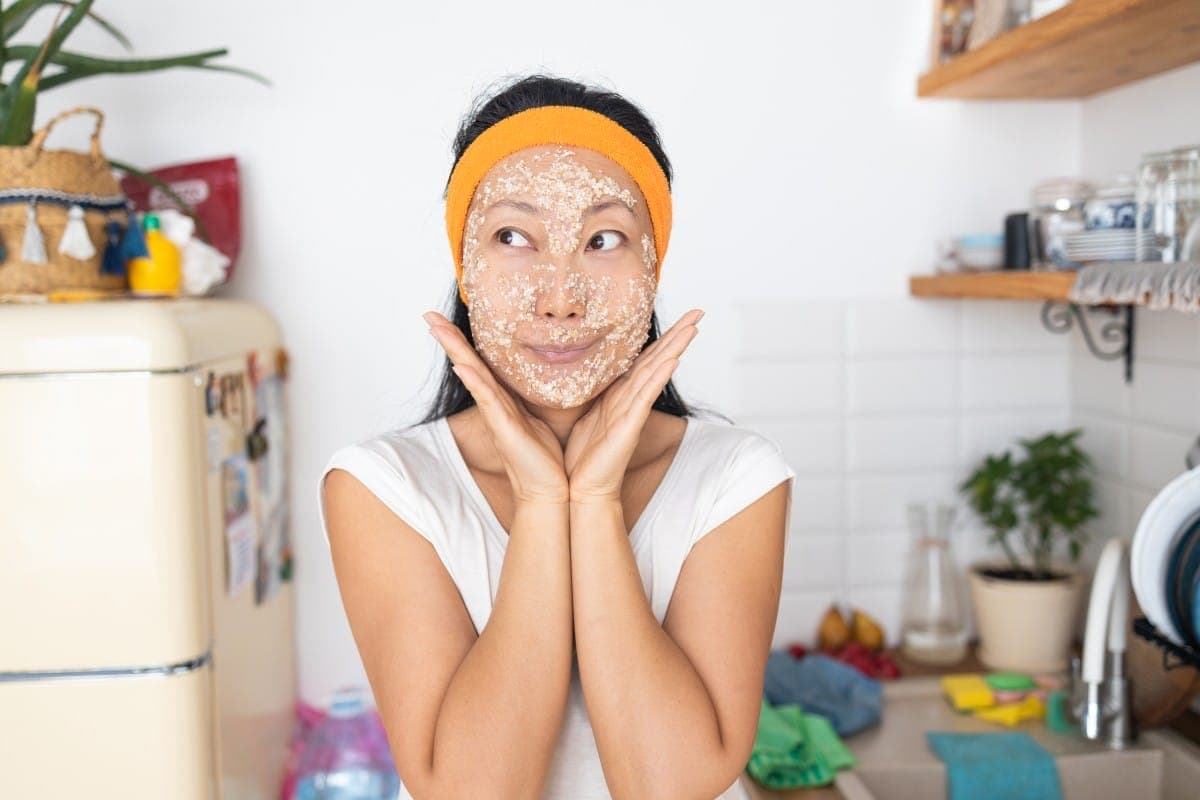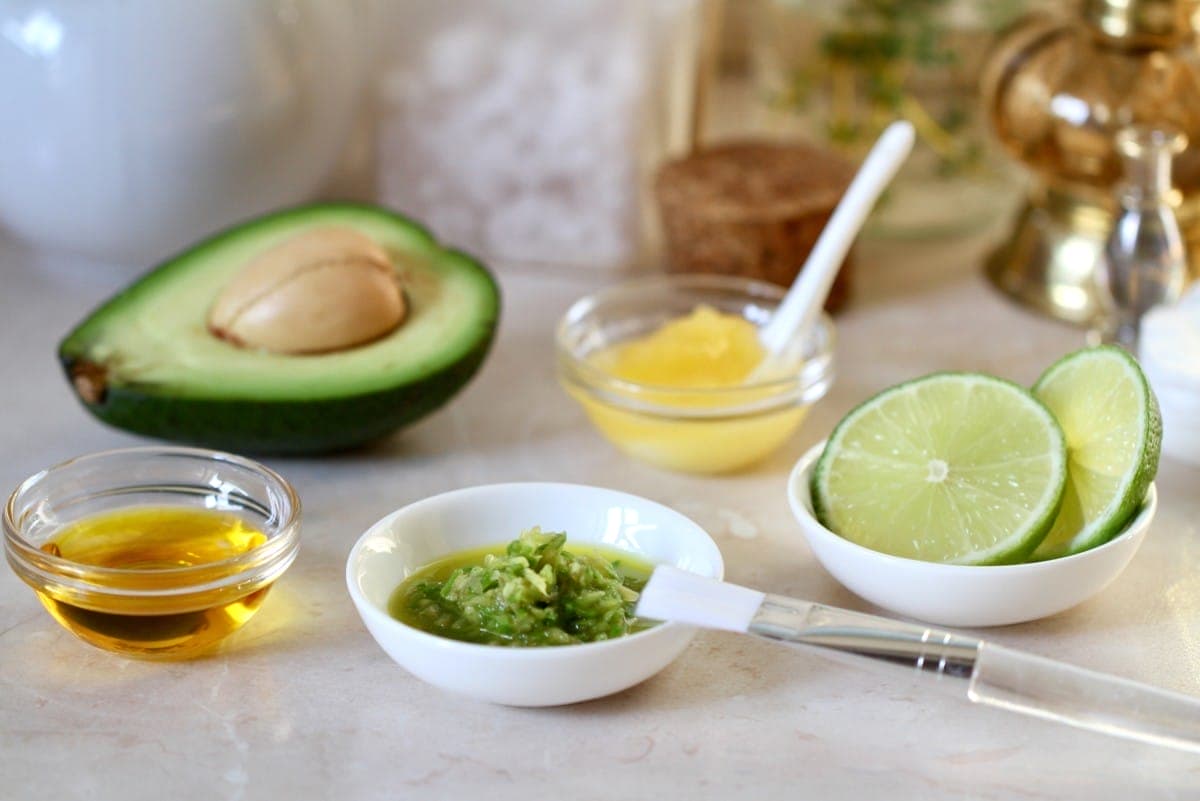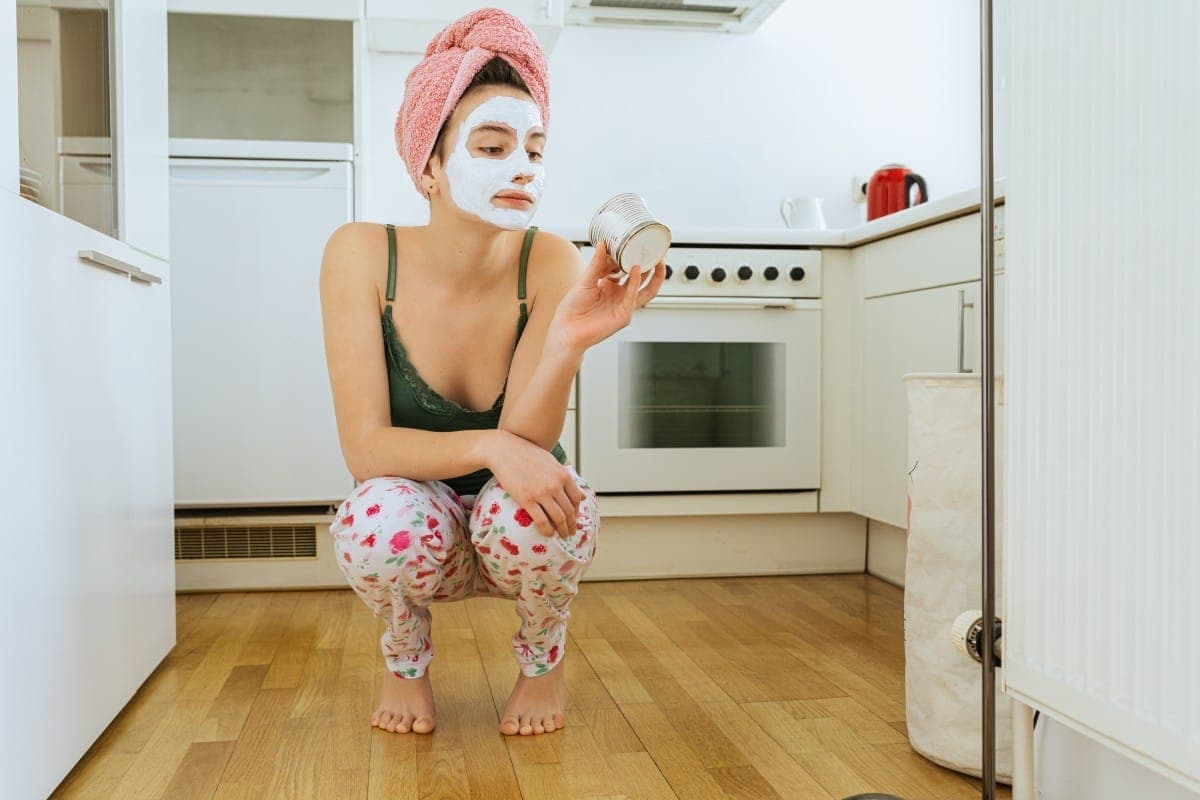Skincare, Trends & Opinions
Natural Beauty: Homemade Face Masks with Food Items from Your Kitchen
If you click on links we provide, we may receive compensation.
Creating a homemade face mask using food items from your kitchen is an easy and effective way to pamper your skin. With the rising popularity of natural skincare, many people are turning to DIY solutions to avoid harsh chemicals found in store-bought products. Not only are these masks free from artificial ingredients, but they are also budget-friendly and customizable to your specific skin needs.
The Benefits of Using Natural Ingredients
Natural ingredients often contain a wealth of vitamins, minerals, and antioxidants that can benefit the skin. For instance, honey is a natural humectant that helps to keep the skin hydrated by drawing moisture from the air into your skin. It also has antibacterial properties, which can help to clear up acne and soothe inflammation. Oatmeal, another common kitchen ingredient, is excellent for sensitive skin and can help to calm irritation and redness.
Using food-based masks can also reduce your environmental impact. Many commercial skincare products come in plastic packaging, contributing to pollution. By making your own masks at home, you can use ingredients you already have, reducing waste and the need for additional packaging.
Avocado and Honey Mask
One popular recipe combines avocado and honey. Avocados are rich in healthy fats, vitamins, and antioxidants, which can help to nourish and moisturize your skin. Honey, as mentioned earlier, has antibacterial properties and is also a natural humectant. To make this mask, mash half an avocado until it’s smooth, then mix in a tablespoon of honey. Apply this mixture to your face, avoiding the eye area, and leave it on for about 15-20 minutes. Rinse with warm water and pat your skin dry.
This mask is particularly beneficial for dry and sensitive skin. The fats in the avocado provide deep hydration, while the honey helps to lock in moisture and provide a soothing effect. Regular use can help to improve skin texture and leave your face feeling soft and supple.
Yogurt and Oatmeal Mask
Another excellent mask for soothing and exfoliating the skin involves yogurt and oatmeal. Yogurt contains lactic acid, which gently exfoliates the skin, removing dead skin cells and promoting a brighter complexion. Oatmeal is known for its anti-inflammatory and soothing properties, making it ideal for sensitive skin.




To prepare this mask, combine two tablespoons of plain yogurt with one tablespoon of finely ground oatmeal. Mix until you have a smooth paste. Apply it to your face and leave it on for about 15 minutes before rinsing off with warm water. This mask can help to calm irritation, reduce redness, and leave your skin feeling refreshed and smooth.
Banana and Turmeric Mask
Bananas are not only a delicious snack but also an excellent ingredient for a homemade face mask. They are rich in vitamin A, vitamin B, and vitamin E, which can help to improve skin elasticity, reduce the appearance of wrinkles, and promote a healthy glow. Turmeric, known for its anti-inflammatory and antibacterial properties, can help to clear up acne and brighten the skin.
To make this mask, mash half a banana and mix in a teaspoon of turmeric powder. You can also add a tablespoon of yogurt for additional moisturizing benefits. Apply the mixture to your face and leave it on for about 10-15 minutes before rinsing off. This mask is great for acne-prone skin and can help to reduce inflammation and improve your overall complexion.
Cucumber and Aloe Vera Mask
Cucumbers are well-known for their cooling and hydrating properties. They are composed of about 96% water, making them perfect for hydrating the skin. Aloe vera, on the other hand, is a powerhouse of vitamins, minerals, and antioxidants that can help to soothe and heal the skin.
To prepare this mask, blend half a cucumber and mix it with two tablespoons of aloe vera gel. Apply this mixture to your face and leave it on for about 15-20 minutes. Rinse off with cool water. This mask is especially beneficial for sunburned or irritated skin, providing a cooling and soothing effect.
Egg White and Lemon Mask
Egg whites are an excellent ingredient for tightening and firming the skin. They contain proteins that can help to improve skin elasticity and reduce the appearance of pores. Lemon juice, rich in vitamin C, can help to brighten the skin and reduce dark spots.
To make this mask, whisk one egg white until it becomes frothy and then mix in a teaspoon of fresh lemon juice. Apply this mixture to your face, avoiding the eye area, and leave it on until it dries completely. Rinse off with warm water. This mask is ideal for oily and acne-prone skin, helping to tighten pores and reduce excess oil.
Brown Sugar and Olive Oil Scrub
While not a mask in the traditional sense, a brown sugar and olive oil scrub can be an excellent addition to your skincare routine. Brown sugar acts as a gentle exfoliant, removing dead skin cells and promoting a smoother complexion. Olive oil is rich in antioxidants and has moisturizing properties, making it ideal for dry skin.
To prepare this scrub, mix one tablespoon of brown sugar with one tablespoon of olive oil. Gently massage the mixture onto your face in circular motions, focusing on areas that need extra exfoliation. Rinse off with warm water and pat your skin dry. This scrub can be used once or twice a week to keep your skin smooth and hydrated.
The Science Behind DIY Masks
Homemade face masks are not just about natural ingredients; they also involve some basic skincare science. For example, the pH level of your skin is slightly acidic, around 5.5. Many natural ingredients, like yogurt and honey, have a pH level that is compatible with your skin, helping to maintain its natural balance. This is crucial for keeping your skin healthy and preventing issues like dryness, irritation, and acne.
Another scientific aspect is the molecular size of the ingredients. Ingredients like avocado and olive oil have smaller molecules that can penetrate the skin more deeply, providing better hydration and nourishment. On the other hand, ingredients like oatmeal and brown sugar have larger molecules that sit on the surface of the skin, making them effective for exfoliation and soothing.
According to a report by Grand View Research, the global organic personal care market is expected to reach $25.11 billion by 2025, driven by increasing consumer awareness about the benefits of natural products.
Customizing Your Masks
One of the best aspects of homemade face masks is their versatility. You can easily customize them to address your specific skin concerns. For example, if you have dry skin, you can add a few drops of olive oil or coconut oil to your mask for extra hydration. If you have acne-prone skin, you can add a teaspoon of tea tree oil, known for its antibacterial properties.
It’s also essential to consider any allergies or sensitivities you might have. Always do a patch test before applying a new mask to your face to ensure you don’t have an adverse reaction. This is particularly important when using ingredients like lemon juice or turmeric, which can cause irritation in some people.
The Popularity of Natural Skincare
The trend towards natural skincare is more than just a passing fad. According to a report by Grand View Research, the global organic personal care market is expected to reach $25.11 billion by 2025, driven by increasing consumer awareness about the benefits of natural products. People are becoming more conscious of what they put on their skin and are seeking out products that are free from synthetic chemicals and preservatives.
This shift is also reflected in the increasing number of DIY skincare recipes available online. From social media influencers to beauty bloggers, many people are sharing their favorite homemade mask recipes, encouraging others to try natural alternatives. This growing community of natural skincare enthusiasts is helping to spread the word about the benefits of using food-based ingredients for skincare.
Embrace Natural Beauty
Making your own face masks at home using food items from your kitchen is a simple, cost-effective way to care for your skin. With ingredients like avocado, honey, yogurt, oatmeal, and more, you can create masks that nourish, exfoliate, and soothe your skin without the need for artificial additives. Whether you have dry, oily, sensitive, or acne-prone skin, there’s a recipe that can help you achieve a healthier complexion.
As you explore these recipes, remember to customize them to suit your needs and preferences. The beauty of DIY skincare is its flexibility and the ability to tailor each mask to your specific concerns. So, the next time you’re in the kitchen, take a moment to consider the skincare potential of the ingredients around you. Your skin will thank you for it.




